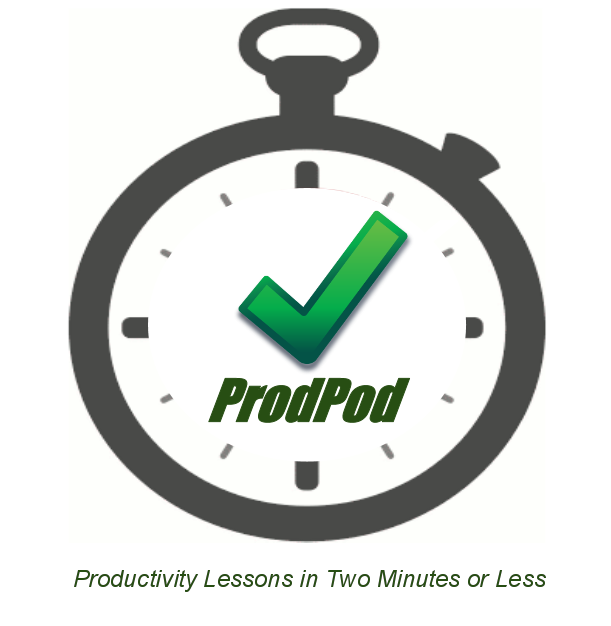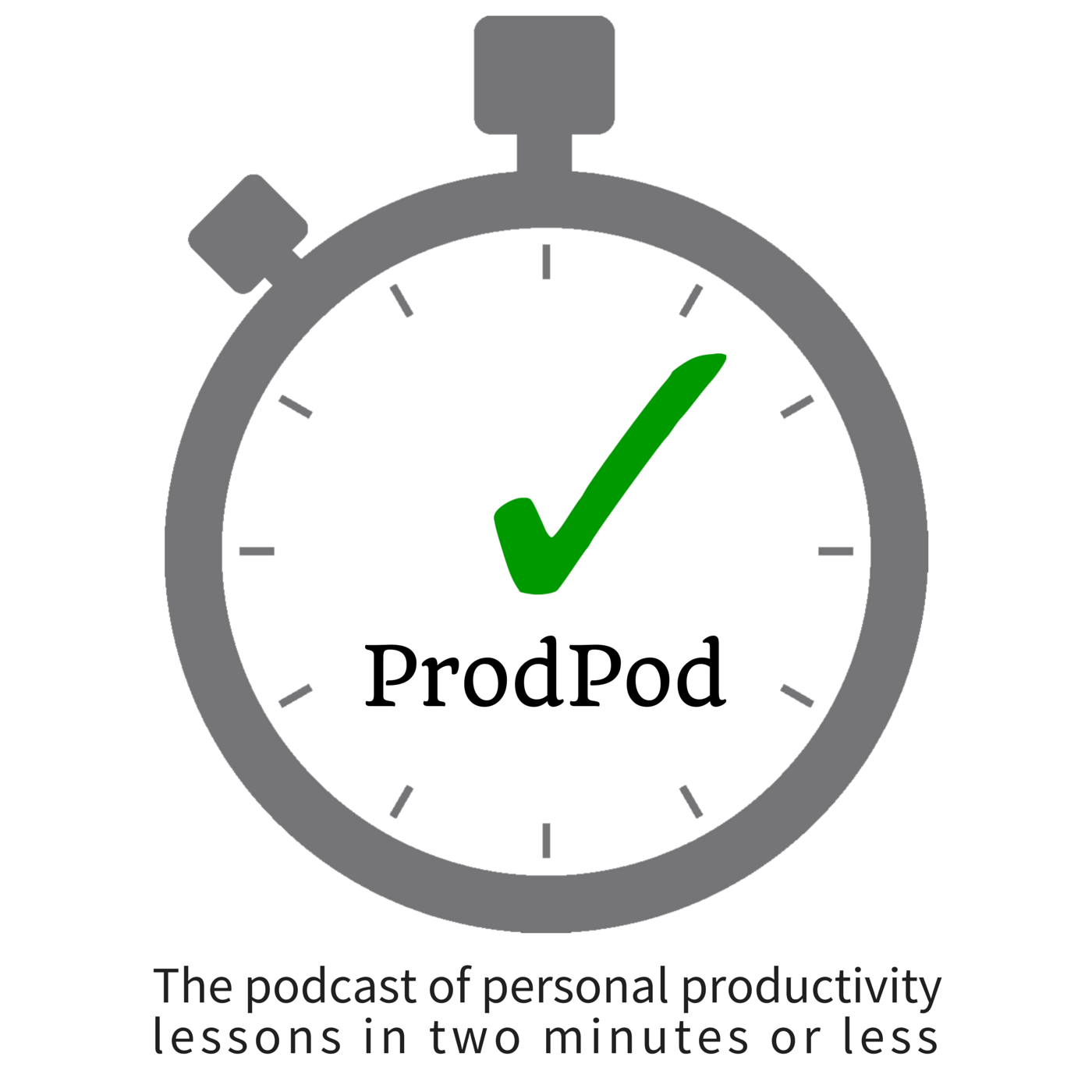Episodes

Tuesday Jan 15, 2013
ProdPod: Episode 49 -- Pareto Principle of Productivity
Tuesday Jan 15, 2013
Tuesday Jan 15, 2013
In this episode I discuss the Pareto Principle of Productivity, so 20% of the next two minutes contains 80% of its productive value! ;-) Enjoy!
At a very young age, we understand that some things are more important than others. As soon as we're born, we learn that the scent of our mothers is important for our survival as the source of our nutrition. As we get a bit older, we realized quickly that mom and dad are more important than the strangers on the street. And as the comparison between objects and concepts get stronger and more complex, we learn to differentiate.
Did you ever hear that 80% of your success comes from 20% of your effort? Inversely, you commit 80% of your effort on outcomes that provide you only 20% of your success.
Have you heard of the 80/20 rule, or better known as the Pareto Principle? This notion comes from economics..to be precise, from an Italian economist Vilfredo Pareto at the turn of the 20th century. He observed that 80% of land (ergo, 80% of its wealth) was owned by 20% of the people, therefore 80% of the wealth was owned by the 20% that were wealthy, and not just in Italy but in many other countries as Pareto did more statistical analysis. This Pareto Principle has been applied in business, health care, mathematics and many other fields, and now it's made its way into personal productivity. I'll take the latitude of stating generally the Pareto Principle for productivity as 80% of your success comes from 20% of your effort. The standard advice therefore is to focus on that 20% then eliminate the rest. And, I mostly reject this notion for anyone who is already working efficiently and effectively. You see, if you've learned a productivity methodology (like GTD) or have your own productivity system designed, especially how to actively process your inputs into actions, delete, delegate, defer, and archive your inputs, you probably won't find much value in the stated corollary to the Pareto Principle. My take on the 80/20 rule has more to do with the over-arching strategy behind your productivity system and making it work better for your already productive life. While most productivity experts speak of efficient, effective effort (the 20%), So, at the project and system level, use 20% of your time to plan AND review to yield the best 80% of your productive DOING time. For example, you make a list, do what's on that list then afterward review what you did. I recommend that 80% of your time should have been spent doing what was on the list, 10% planning, and 10% reviewing. Although 80% is a rough estimate (and you should find out how much planning and review is really good for you), the 80/20 rule gives you a good standard set to know when you're planning and reviewing too little or too much.From Wikipedia: The Pareto principle (also known as the 80-20 rule, the law of the vital few, and the principle of factor sparsity) states that, for many events, roughly 80% of the effects come from 20% of the causes. The Pareto principle was a prominent part of the 2007 bestseller The 4-Hour Workweek by Tim Ferriss. Ferriss recommended focusing one's attention on those 20% that contribute to 80% of the income. More notably, he also recommends 'firing' – refusing to do business with – those 20% of customers who take up the majority of one's time and cause the most trouble.


No comments yet. Be the first to say something!